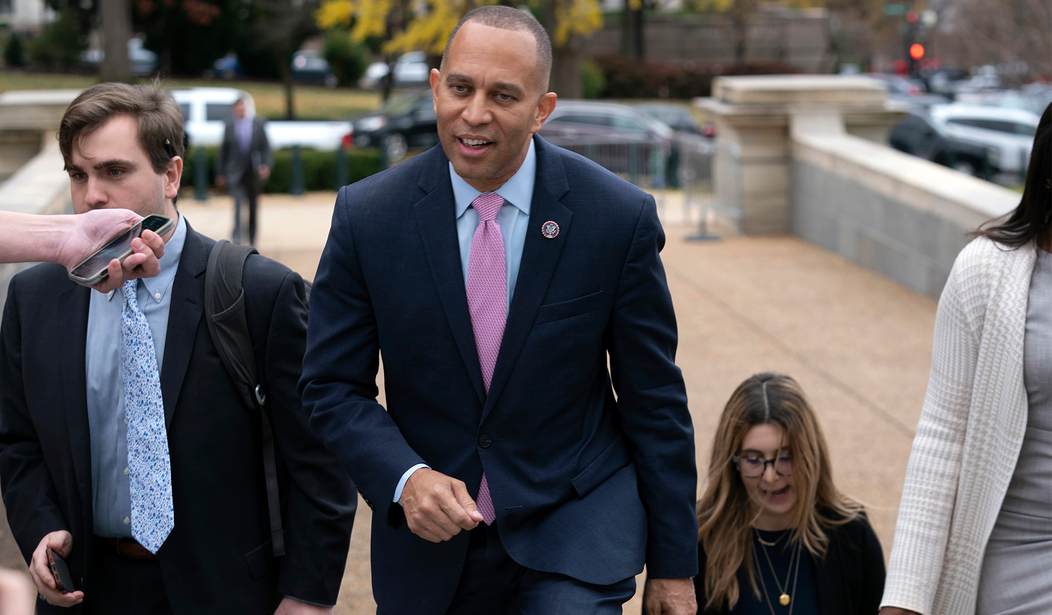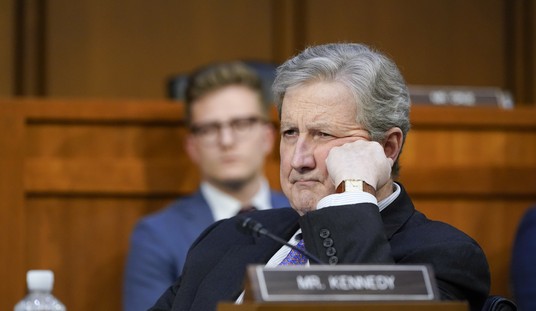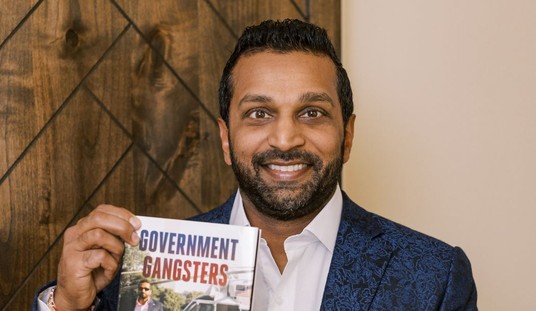Not surprisingly, the press went absolutely gaga Wednesday when Rep. Hakeem Jeffries (D-N.Y.) was voted in by House Democrats to be their Minority Leader in the next session of Congress, with many gushing about how Jeffries, who current House Speaker Nancy Pelosi (D-Calif.) was said to be aggressively promoting behind the scenes prior to her announcing she wouldn’t be seeking a leadership post, was making history as “the first Black person to lead a congressional caucus.”
Left out of most of the MSM’s love-fests about Jeffries, however, is that he was supported by his fellow Democrats despite the fact that he is – by the left’s own definitions – a threat to democracy seeing as that he’s an election denier who pushes conspiracy theories and delegitimizes the Supreme Court as documented here and in the below examples:
Meet Election Denier Hakeem Jeffries — the new leader of the House Democrats. pic.twitter.com/vCh19NsLQx
— RNC Research (@RNCResearch) November 17, 2022
Hakeem Jeffries is a threat to our democracy who denies the legitimacy of the Supreme Court https://t.co/gv9JPMZtNf pic.twitter.com/vW9sMaZ0hh
— Matt Wolking (@MattWolking) November 17, 2022
Sen. Minority Leader Mitch McConnell (R-Ky.) is one of the more prominent Republican leaders to point out this inconvenient fact, noting that it was rather interesting that Democrats and the media spent the last several years pointing out how “dangerous” denying election results and casting doubt on the decisions made by the court system supposedly was to democracy and stuff.
As a result of leaders like McConnell and others refreshing memories on Jeffries’ publicly stated claims about the 2016 election, other elections, and the legitimacy of the Supreme Court, the mainstream media is predictably rushing in to defend Jeffries, employing the tiresome “It’s ok when they do it” defense in the process because of course they are.
Exhibit A is Time magazine, which suggested that Republicans making the “election denier” argument on Jeffries was “misleading.” They trotted out one supposed elections expert to back them up:
Calling Jeffries an “election denier’ is misleading and conflates different issues. “Casting unfounded doubt on the outcome of an election is irresponsible when either party does it,” says Rachel Orey, associate director of the Elections Project at the Bipartisan Policy Center, a nonpartisan Washington think tank. “But I think it’s important to remember that the culture around elections was quite different before 2020.”
Prior to the 2020 election, many Democrats pointed to evidence of Russian interference in the 2016 election, the fact that Trump won the Electoral College but did not win the popular vote, and used talking points calling Trump “not my President.” But the actions taken by Trump and his supporters leading up to 2020 election and after were unprecedented. Trump stoked false conspiracies of voter fraud, filed more than 60 election-related lawsuits, and pressured officials to interfere with election results. Since then, recent polls have shown that more than half of Republicans believe the 2020 election was stolen.
“Actions taken by Trump and his supporters leading up to and after” the 2020 election were “unprecedented …”? Oh really? Mollie Hemingway would like a word.
In fact, within hours she instructed her team to lean into the Russia collusion hoax she bought and paid for. She tried to force electors to hear her disinfo operation prior to their vote. And Dem intel officers’ leak and sabotage campaign was in high operation in Dec. and Jan. https://t.co/40TBkQJYm1
— Mollie (@MZHemingway) September 6, 2022
And after the 2016 election, Hillary Clinton, Nancy Pelosi, and a whole host of prominent and powerful Democrats repeatedly worked to delegitimize Trump’s election by alleging without evidence that he “colluded” with Russia in some way to covertly subvert the democratic process. Farcical impeachment proceedings were held in part on this basis, with the media’s full approval. Democrat/media darling Stacey Abrams, who lost the Georgia gubernatorial race in 2018 (and again in 2022) has yet to concede she lost the 2018 race, giving election denial a whole new meaning.
There’s nothing wrong with questioning the results of an election. There’s nothing wrong with filing lawsuits if you think something is amiss. But what is wrong is for The Usual Suspects to try to con people into thinking that refusing to believe your opponent won and taking action either in Congress and/or by way of the court system is something new and confined only to Republicans.
George W. Bush, for instance, was never accepted by most hardline Democrats as being legitimately elected after the 2000 election, and there were Democrats in the House who objected to the certification of his election in both 2001 and 2005. Same for Donald Trump in 2017, where House Democrat Jamie Raskin – who led the second impeachment trial for Trump after the Capitol riot – was one of several who formally opposed certifying his election victory.
Democrats have enjoyed pretending to hold the moral high ground on this issue for a couple of years now but they most certainly do not. And with the elevation of Jeffries to the top leadership position in the U.S. House, I’d say the point has once and for all officially been made.
Related–>> Report: Adam Schiff Makes His Move as Schumer Punts on the Feinstein Problem














Join the conversation as a VIP Member